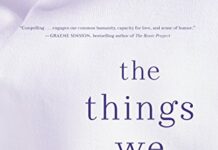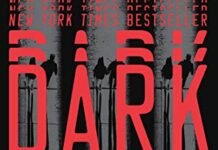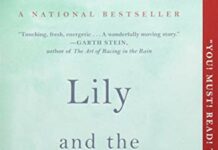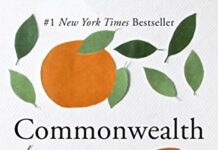
Ebook Info
- Published: 2016
- Number of pages: 544 pages
- Format: Epub
- File Size: 12.32 MB
- Authors: Justine van der Leun
Description
The story of Amy Biehl is well known in South Africa: The twenty-six-year-old white American Fulbright scholar was brutally murdered on August 25, 1993, during the final, fiery days of apartheid by a mob of young black men in a township outside Cape Town. Her parents’ forgiveness of two of her killers became a symbol of the Truth and Reconciliation process in South Africa. Justine van der Leun decided to introduce the story to an American audience. But as she delved into the case, the prevailing narrative started to unravel. Why didn’t the eyewitness reports agree on who killed Amy Biehl? Were the men convicted of the murder actually responsible for her death? And then van der Leun stumbled upon another brutal crime committed on the same day, in the very same area. The true story of Amy Biehl’s death, it turned out, was not only a story of forgiveness but a reflection of the complicated history of a troubled country.
We Are Not Such Things is the result of van der Leun’s four-year investigation into this strange, knotted tale of injustice, violence, and compassion. The bizarre twists and turns of this case and its aftermath—and the story that emerges of what happened on that fateful day in 1993 and in the decades that followed—come together in an unsparing account of life in South Africa today. Van der Leun immerses herself in the lives of her subjects and paints a stark, moving portrait of a township and its residents. We come to understand that the issues at the heart of her investigation are universal in scope and powerful in resonance. We Are Not Such Things reveals how reconciliation is impossible without an acknowledgment of the past, a lesson as relevant to America today as to a South Africa still struggling with the long shadow of its history.
“A masterpiece of reported nonfiction . . . Justine van der Leun’s account of a South African murder is destined to be a classic.”—Newsday
User’s Reviews
Review “We Are Not Such Things overturns the conventional narrative of [Amy] Biehl’s murder by trying to establish what actually happened, and by examining its effects, over two decades, on the people involved. In this way, its publication could not be more timely, given how many young black South Africans are now expressing anger at—and betrayal by—the Mandela project. . . . Where [Justine van der Leun’s] book is gripping, explosive even, is in the kind of obsessive forensic investigation—of the clues, and into the soul of society—that is the legacy of highbrow sleuths from Truman Capote to Janet Malcolm. . . . [Van der Leun] can write superbly, and . . . she crafts a close sense of place that rivals the work of Katherine Boo. . . . She is deeply compelling as a sleuth and social observer: The book becomes a page turner. . . . The reader leaves it, as one does any well-wrought mystery, with precisely the author’s own sense that truth resides in the failure to find it.”—The New York Times Book Review“Extraordinary . . . Justine van der Leun’s account of a South African murder is destined to be a classic. . . . Van der Leun stays with the story, all of it, and crafts a narrative both fuller and more intimate than the one the world was told. She takes nothing away from Amy, whose murder was horrific. But she impresses upon the reader that no one life or death is worth more than another. For this, and for writing a masterpiece of reported nonfiction, she deserves our plaudits and our awe.”—Newsday“Engaging . . . part whodunnit and part travelogue . . . a deeply researched and thought-provoking book . . . with some penetrating insights.”—The Economist“[Van der] Leun probes the characterization of [Amy] Biehl as a martyr to the cause of black South African liberation, and examines the murder, the trials, and the afterlives of witnesses, detectives, and the accused. She displays exquisite insights into the inner lives of those involved, the erasure of shameful histories, and the stresses of absolution without accountability.”—The New Yorker“A 1993 killing sheds light on the complexities of modern South Africa.”—The New York Times Book Review, Editors’ Choice“Unforgettable . . . a gripping narrative that examines the messiness of truth, the illusory nature of reconciliation, [and] the all too often false promise of justice.”—The Boston Globe“Compelling . . . [van der Leun] has a resident’s wry familiarity with the jangling contradictions of a country in which shopping malls sit side by side with shantytowns, while retaining an outsider’s unsentimental perspective on its ongoing racial tensions, and a bracing scepticism about the rhetoric of liberation. [Her] hard-nosed reconstruction of an alternative narrative . . . raises troubling, and still pertinent, questions about the deals that sometimes have to be struck by former enemies when faced with the exigencies of nation-building.”—The Guardian
Reviews from Amazon users, collected at the time the book is getting published on UniedVRG. It can be related to shiping or paper quality instead of the book content:
⭐ Having lived in South Africa, I had to read We Are Not Such Things when I first came across it.The story is about author Justine van der Leun’s quest to get to the bottom of what really happened the day Amy Biehl, an American student on a Fullbright scholarship in South Africa, was killed by an angry mob in a township near Cape Town in 1993 – during that period between Nelson Mandela’s release from prison and his election as president when the threat of civil war loomed over South Africa.If you’re interested in that long-ago story, this book will bring it back in all its detail. But it’s more than that. I would say it’s one of the best portraits of life in a South African township that I’ve read. In the course of her investigation, Justine gets to know the main players on that fateful day and forges an especially close bond with one of the men who pleaded guilty to Amy’s murder, Easy Nofemala. Through Easy, Justine gets to meet other witnesses on frequent visits to Gugulethu and surroundings.The deeper she digs, the more confusing it gets. Did Easy and the other accused really commit the crime? Were they wrongfully convicted, and if so, why is it so hard to get to the truth? To me, these visits revealing the convoluted relationships between the different characters of that story and their even more convoluted relationship to the truth are the real gem in her book.It is somewhat unsatisfying that when you turn the last page, you have no idea what really happened that day in 1993. If your sole goal in reading the book is to find out what happened, don’t read it, you’ll be disappointed. I think the publisher wasn’t quite honest in pushing exactly that narrative, and this is one reason I don’t think the book is worth 5 stars.However, it is a fascinating portrait of one of the many faces of South Africa.
⭐ I’m a white, former South African (liberal, anti-apartheid activist, left in 1975) who knows the country and Cape Town, and worked in the townships and District Six as a medical student and an intern at the University of Cape Town’s teaching hospitals. Therefore I was naturally drawn to read this book.The author, an American visiting South Africa with her SA-born husband, manages to get under the skin of South Africa, below the apparent truths, specifically of a particular event at a particular time in the country’s history – the senseless, non-political, brutal murder by a mob, of Amy Biehl, an idealistic 26-year-old American woman who was working for a better South Africa for people of color and especially women, during the transition to black rule under Nelson Mandela. In August 1993, the month of Amy’s murder, the country was on fire.Some of the descriptions of violence, including the actual murder of Ms Biehl are profoundly disturbing on many levels. The author captures the mood of the times and of the mobs. In addition, through her descriptions of the real-life characters in the book, she paints an accurately wrenching picture of the often grinding misery, depradation, struggles, and everyday violence and death that was and is life in the ‘non-white’ townships – among the many consequences and legacies of apartheid. Into the story the author weaves South African history for context, and discusses the Truth & Reconciliation Commission – its purposes and complex outcomes for different individuals.To read this book as a former South African is to be catapulted back into the turmoil and hate and incomprehensible brutality and injustices of apartheid, that led so many of us to leave; but also into present-day South Africa, 22 years after Mandela’s ANC came to power. One of the author’s astute observations about current South Africa was this, in reference to an episode of road rage she experienced: “…South Africans were outraged – about race relations, corruption, ineptitude, money, class, politics. Beneath a thin veneer of good manners, the whole society was teeming with tension and entitlement, where people packed pistols and where everyone was perceived as either a potential perpetrator or a potential victim. Perhaps for these reasons, and because the cops rarely enforced traffic laws and took bribes South Africans were notoriously aggressive, reckless drivers.”Unfortunately, one has to dig through a lot of dross to get to a nugget like that, because the book is way way too long – unnecessarily so – and reading it was an exercise in frustration and exasperation.First, it oversells itself on the central topic. It presents itself as having unearthed major new truths about the day and circumstances of Amy Biehl’s death. The reader keeps wondering, ‘OK, where is the meat, when will she cut to the chase?’ So, it turns out – after much broad hinting along the way – that one of the guys who claimed to have taken part in the killing of Ms Biehl turned out to have confessed in order to protect / cover for his younger brother, who was in fact one of the killers. And – earlier that same day in a township nearby, there was a brutal attack on a white man, a city electrical worker, by some of the same mob, an event barely reported until now. The author tracks down this history and the individual himself, a man who is white, but yet another casualty of apartheid. While the story and journey of discovery are of interest, now, almost 25 yrs later they are not discoveries of consequence. No-one will be charged or released.While the author did indeed go to enormous lengths to uncover heretofore unknown facts, unfortunately she presents every detail (so it seems) of her journey of discovery with mind-numbingly excessive detail and repetition. Repeated visits to the townships, repeated and endlessly detailed descriptions of the townships (just a few would have sufficed), non-pertinent details of peoples’ lives and relationships, clothes, furniture, living rooms, where people hang the pictures on the walls in the townships, etc. Proper editing should have reduced this book in length by some 50%, and its impact would have been that much greater. Decent editing would have also picked up some errors of fact and sloppy sentences – though these are minor comments in the overall scheme of things.In addition, the author comes across as mean-spirited about a central figure in the book – Amy’s mother, Linda Biehl. Linda Biehl is woman whose daughter – educated, smart, humble, gracious, idealistic, spirited, committed, accomplished – was murdered at the age of 26 years in a horrific, gratuitously brutal manner by a mindless mob, for the crime of being a white person in the wrong place at the wrong time. Imagine being the parent of a young woman who is bludgeoned and stabbed to death – a half a world away from your family’s world in California. Yet Linda and Peter Biehl and their family journeyed frequently to South Africa, and repeatedly and consistently acted with grace and kindness and a generosity of spirit and forgiving and financial donation. They learned about the country and its complex history and problems. They reached out to Amy’s killers, forgave them, employed them, set up the Amy Biehl Foundation in Amy’s memory to honor her ideals, to try and continue her work. While acknowledging the facts of all this, the author often writes disparagingly of Linda Biehl’s demeanor and appearance, the author displaying her impatience / suspicion of Linda; in effect, the author second-guesses the grief, motivation and coping mechanisms of a bereaved parent. Linda then suffers another loss when her husband Peter dies at the age of 59 of colon cancer.Compared with her attitude toward Linda Biehl, in some ways the author appears to show greater affinity and affection for some of the shady characters and killers in her story. She has osmosed the South African condition, and evinces it.Eric Hassall MDSan Francisco, CA
⭐ This is not only one of the best books I’ve read on South Africa (& I’ve read plenty), but one of the best books I’ve read recently, period. (And no, I’m not a friend of the author’s, nor did I receive a free copy!) With an open mind, an open heart and an ever-open notebook, Justine van der Leun, an outsider, manages to capture the texture of contemporary South African life, with all its confusing and heart-breaking contradictions, better than just about anyone I can think of. And her reinvestigation of the Amy Biehl case is a real eye-opener and reality check, even for those of us who are familiar with that story (or thought we were). What drives this narrative is the author’s attention to detail, her curiosity, her compassion, and the vivid cast of characters she introduces us to. Wonderful writing, to be savored for its own sake.
⭐ I worked in South Africa from 1990 to 1994 and spent a lot of time there in the 1970s. I spoke with Amy Biehl about working on voter education a couple days before she was murdered and I worked with most of the leaders mentioned in the book. For me, it was painful to revisit the events of that time, but think the author did an outstanding job of capturing the atmosphere at that time. It is very Cape Town centric, so it misses some very interesting developments in other parts of the country that were taking place at that time, but she does an excellent job of covering a small area. That is in sharp contrast to the majority of foreigners, especially Americans, who saw events in South Africa as merely a continuation of the civil rights struggle in the U.S. My only criticisms are that it could have been at least 100 pages shorter and, in spite of promising new insights, she doesn’t reveal anything new. Even the attack on the city worker earlier in the day that is supposed to be the key to revealing some startling truth is not new. I remember it. It was, unfortunately, not particularly unique at that time, so it did not attract the kind of attention Amy Biehl’s murder did. It also didn’t provide the ANC with a powerful propaganda tool with which to beat the PAC. The author worked hard to uncover some startling revelation, but she failed to uncover very much. Nevertheles, it is a fine account of an exciting, but painful time in recent South African history.
⭐ “We Are Not Such Things” is an extraordinary book, both beautifully written and completely riveting. Journalist Justine van der Leun re-investigates a real-life murder mystery at several levels of magnitude simultaneously: as a deeply personal set of intertwining stories (including her own), as an encapsulation of South African politics at the bitter end of apartheid, and as a meditation on the ambiguity and fundamental unknowability of complex historical narratives. It’s a stunning achievement.
⭐ The book brings forth the stark and raw differences between circumstances of black and white people living in SA. Also the blatant disregard of the American girl, Amy Bhiel, to the volatile conditions in the townships where riots were constantly afoot against the government of the day. She was murdered because she was a white face in the township on that particular day. The book revealed the vast economic divide between the various ethnic groups and leaves you with a despairing feeling that nothing will ever change. The author’s description of the landscape and events are vivid, distinct and striking. I thought the author did a magnificent job although at times it became tedious going over the same subjects time and time again.
⭐ This is an interesting story about forgiveness and reconciliation set in troubled South Africa. The true details of the murder of Amy Biehl will probably never be known and that was disappointing because the book was overly long by 100 pages. I also thought it tedious at times with a lot of details that were unnecessary. An okay read but I eventually skipped to the end and I feel I didn’t really miss much.
⭐ An interesting story that unfolds in twists and turns, doubles back on itself, makes you wince then giggle. I learned more about South African politics, and this book humanized the country’s issues for me. An edifying and enjoyable read.
⭐ I absolutely loved this book. The author tells the story of an American aid worker’s murder in South Africa during the fight to end apartheid, but this book is much more than that. It’s the story of a nation that is struggling to heal its wounds after decades of violence, abuse, and institutionalized racism. It’s the story of present-day life in the townships for a black South African. It’s the story of an American family’s efforts to reconcile their daughter’s murder with their own liberal and anti-apartheid viewpoints. It’s the story of an American woman (the author) who moves to South Africa and falls in love with a complicated and damaged society. This book will make you cry, this book will make you think – and most importantly, this book will make you keep thinking about how complicated it is for a society to change and evolve. The author is quite matter-of-fact and dispassionate in her tone, which makes her story that much more impactful and moving. There is no preaching or proselytizng here – just a very compelling narrative of historical events that leaves you breathless.
⭐ A fascinating exploration of the nature of historical truth in the context of an infamous crime in the waning days of apartheid in South Africa. There is a certain amount of repetition but definitely a worthwhile exercise.
Keywords
Free Download We Are Not Such Things: The Murder of a Young American, a South African Township, and the Search for Truth and Reconciliation in Epub format
We Are Not Such Things: The Murder of a Young American, a South African Township, and the Search for Truth and Reconciliation Epub Free Download
Download We Are Not Such Things: The Murder of a Young American, a South African Township, and the Search for Truth and Reconciliation 2016 Epub Free
We Are Not Such Things: The Murder of a Young American, a South African Township, and the Search for Truth and Reconciliation 2016 Epub Free Download
Download We Are Not Such Things: The Murder of a Young American, a South African Township, and the Search for Truth and Reconciliation Epub
Free Download Ebook We Are Not Such Things: The Murder of a Young American, a South African Township, and the Search for Truth and Reconciliation





